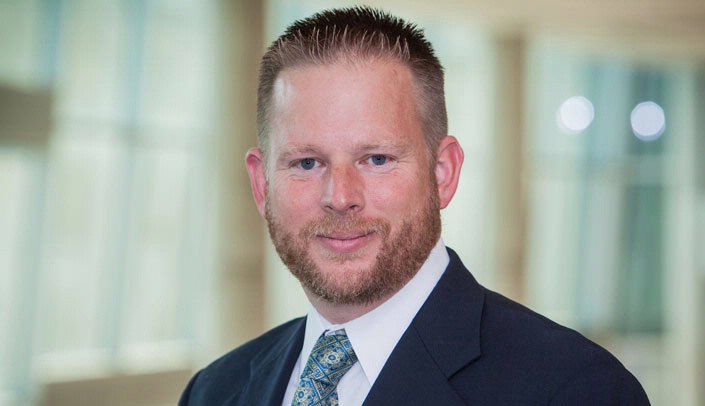To compound the Flint, Mich., water crisis, many affected don’t have great access to health care.
But the UNMC College of Pharmacy is helping make it easier for Flint residents to get themselves tested for levels of lead.
In the wake of the emergency, the Michigan Pharmacists Association reached out to one of its trusted resources — the UNMC College of Pharmacy and its collaborator, Ferris State University.
UNMC had previously worked with the Michigan pharmacists on point-of-care testing — rapid tests which take place at community pharmacies, making them more convenient for patients, and giving pharmacists a role in fighting flu and strep.
UNMC is leading a growing national movement in point-of-care testing at community pharmacies.
Could pharmacists similarly test for lead, and serve a role in helping Flint’s residents?
Turns out, yes. Donald Klepser, Ph.D., associate professor of pharmacy practice, and principal investigator of the “point of care” project, found a Clinical Laboratory Improvement Amendment (CLIA)-waived lead test.
UNMC’s team and the MPA had to navigate legalities, bureaucracy, and, unfortunately, politics. But they ultimately got the go-ahead.
Now, they just had to pay for it.
“There’s no money to be made on this,” Dr. Klepser said. “It’s just good public health.”
Magellan Diagnostics loaned LeadCare II analyzers to Flint pharmacies and decreased the required test kit quantity purchases to assist with implementation costs. And at UNMC, Dr. Klepser pored over his budget and found $5,000 to pay for “a fair number” of tests.
Dr. Klepser and his team plan to write it up as a study, the next step in the “point of care” project. “We hope to show that the pharmacy is an access point that can successfully screen patients,” he said. That, in similar outbreaks, pharmacists can step forward to fill a public health need.
“We are simply creating a new access point (for testing) with better hours that can take some of the pressure off the doctor’s offices and the health departments,” said Greg Pratt, R.Ph., the MPA’s emergency preparedness coordinator. “We are providing care and education in a way people understand and trust.”
Testing is ongoing in Flint, with results reported for tracking and study. If negative, patients get peace of mind. If positive, they are counseled and referred to their physician or the county health department.
For UNMC, it is both research and outreach: “It’s a remarkable opportunity for pharmacists to play a role in providing access in this type of public health emergency,” Dr. Klepser said.

Nice work Don!